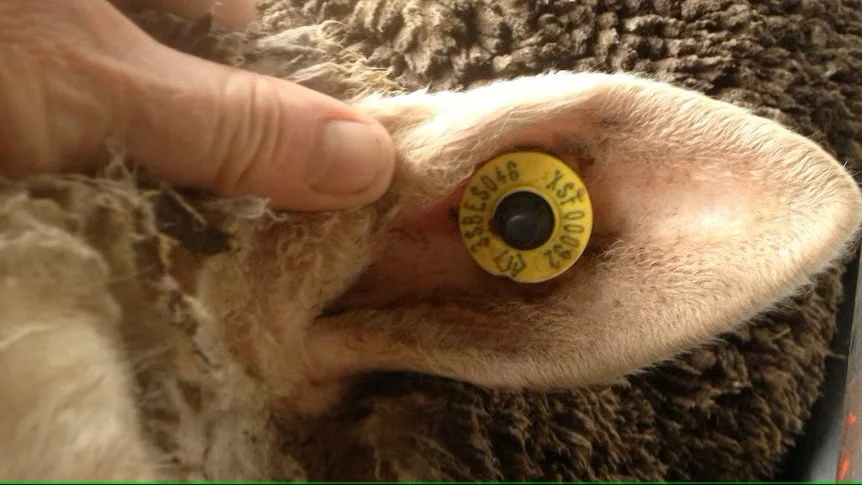What is NLIS? Does it apply to me?
The National Livestock Identification System (NLIS): Ensuring Compliance and Competitive Advantage for Australia's Red Meat Industry
The National Livestock Identification System (NLIS) plays a crucial role in the Australian red meat industry, ensuring the identification and traceability of cattle, sheep, and goats across the country. As Australia’s primary system for tracking livestock, NLIS reflects our commitment to biosecurity, food safety, and maintaining the integrity of our agricultural exports.
What is NLIS?
The NLIS is a national system designed to track livestock through the supply chain, from farm to abattoir and beyond. It is an electronic identification system that uses devices like radio frequency identification (RFID) tags to uniquely identify each animal. The system enables the collection and recording of vital data on each animal’s movement, health status, and ownership, allowing for real-time traceability.
Why is NLIS Important to the Red Meat Industry?
Biosecurity and Food Safety: One of the most vital aspects of NLIS is its role in enhancing biosecurity. In the event of an animal disease outbreak, such as Foot and Mouth Disease (FMD) or Bovine Tuberculosis (TB), NLIS allows authorities to trace animals quickly, minimising the spread of disease and ensuring rapid response. This traceability is essential for maintaining food safety standards and public health.
Market Access & Export Advantage: NLIS provides a competitive advantage in the global market. Countries that import Australian red meat require high standards of traceability and food safety, and NLIS ensures that these standards are met. This system allows Australian producers to access premium markets and meet international regulations, which is essential for maintaining the industry’s reputation.
Animal Welfare & Management: Beyond biosecurity, NLIS supports effective animal management and welfare practices. Producers can use NLIS data to monitor animal movements, health, and performance, which can inform better management decisions, improve productivity, and ensure compliance with animal welfare standards.
Who Has to Comply with NLIS?
Compliance with NLIS is mandatory for Australian red meat livestock producers, including those classed as hobby farmers with 1 or 2 animals. The following stakeholders must adhere to the NLIS requirements:
Primary Producers: All producers involved in the breeding, rearing, and sale of livestock must register and tag their animals accordingly.
Saleyards and Livestock Agents: These entities play a role in tracking the movement of animals, recording transactions, and ensuring that animals are properly identified.
Processors and Exporters: Abattoirs and meat processors must ensure that animals are correctly identified, and their movement data is maintained to meet export regulations.
How Can You Ensure You Are Compliant with NLIS?
Tagging Livestock Correctly: As a producer, it’s essential to ensure that all animals are properly tagged with an NLIS-approved device, whether it’s an RFID tag or other identification method. This tag must remain on the animal throughout its life to allow traceability at every point in the supply chain.
All cattle, sheep and goats must be ear tagged before they are moved from any property to a saleyard, abattoir or another property.
To order an NLIS-approved devices, contact your local DPI authority for the correct order form for your state.
Registering Your Livestock: Producers need to register each animal and its movement within the NLIS database. This includes updating records when livestock are sold, transferred, or moved to a different location.
All stock movement must be documented (usually a National Vendor Declaration and Waybill (NVD) or Transported Stock Statement (TSS)) to which must be fully completed and accompany the animal when they move.
Regularly Log In to NLIS: You must regularly log in to the NLIS online portal to manage your livestock’s identification and movement records. This portal allows you to view, update, and maintain accurate data, ensuring compliance with biosecurity and food safety standards.
Audit and Review Your Records: It’s important to periodically review your records to ensure accuracy and consistency. Inaccurate or incomplete records could result in compliance issues or delays when accessing markets.
Train Staff and Stay Informed: Make sure that your team is trained in NLIS procedures and remains up-to-date with any changes to the system. Staying informed about updates and regulations is crucial for smooth operations and ensuring ongoing compliance.
Work with Your Local Authorities and Consultants: If you're unsure about your obligations or need help with record-keeping or tagging, work with industry consultants or local DPI authorities. They can provide guidance to ensure you are fully compliant with NLIS regulations.
Conclusion
The National Livestock Identification System is more than just a regulatory requirement—it’s a vital tool for ensuring the traceability, biosecurity, and sustainability of Australia’s red meat industry.
By adhering to NLIS, producers not only protect animal health and welfare but also support Australia's position as a trusted global supplier of high-quality meat products.
By following the necessary steps to ensure compliance, you can continue to access both domestic and international markets, increase operational efficiency, and contribute to the overall resilience and success of the Australian agricultural sector.
Stay ahead, stay compliant, and contribute to Australia’s leadership in livestock traceability and biosecurity. If you haven’t already, it’s time to log in to NLIS and ensure your business is on track for continued success.
NLIS Registration/Login - https://www.nlis.com.au/
